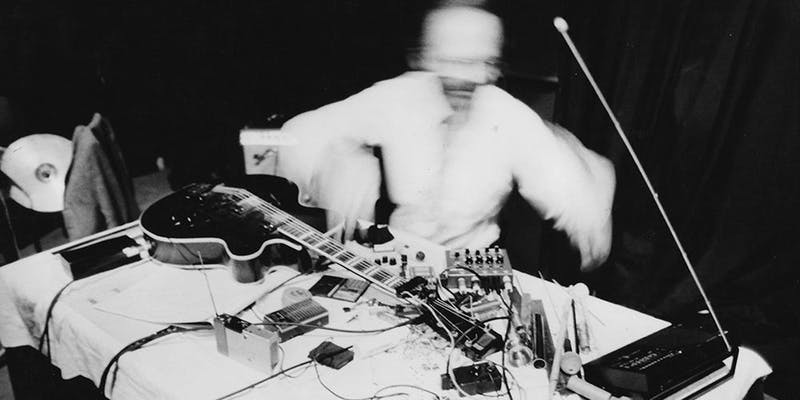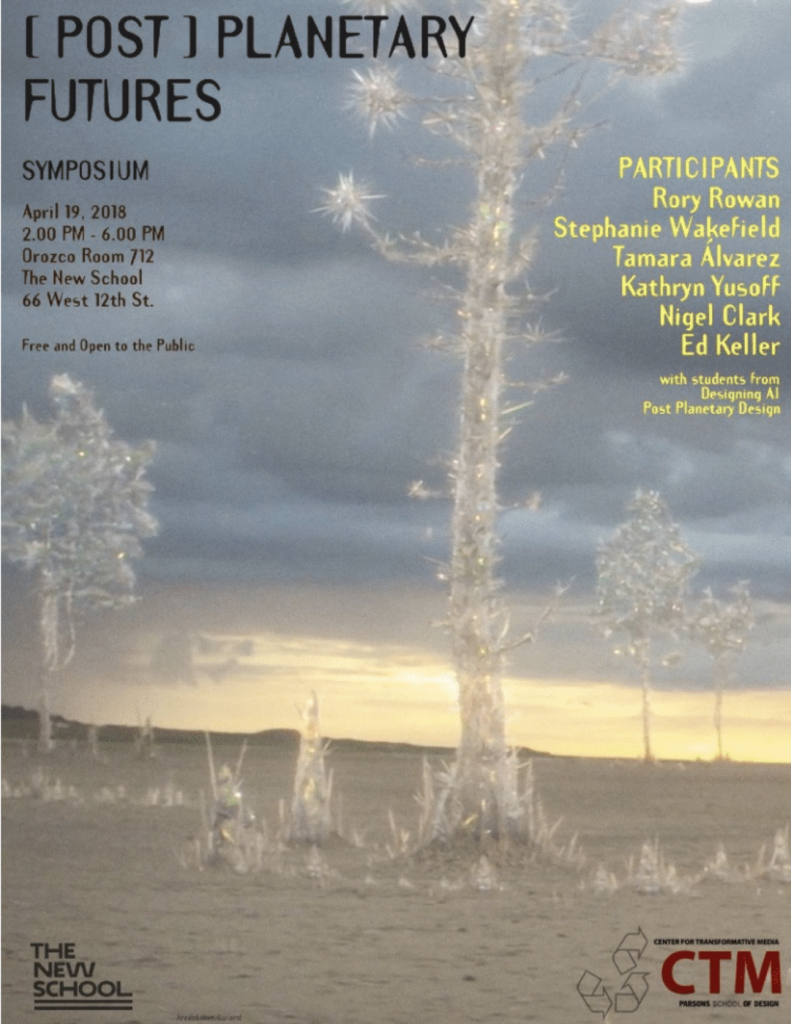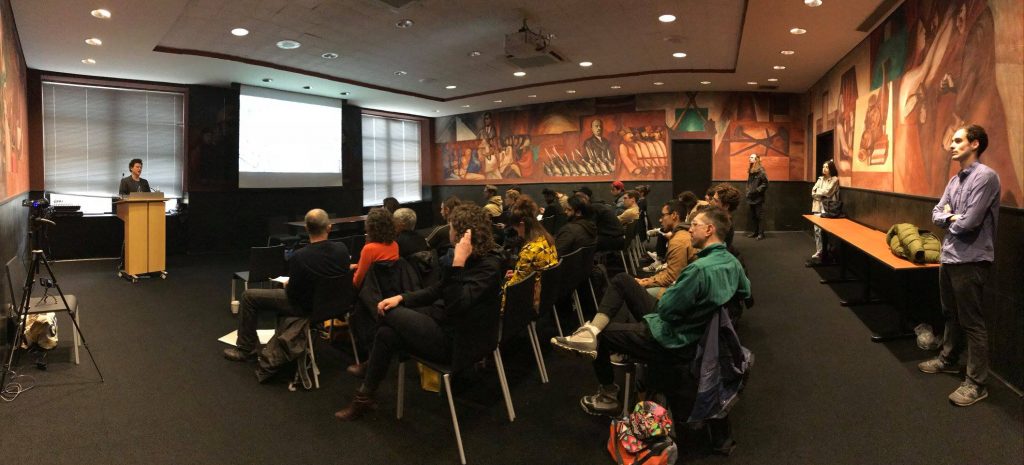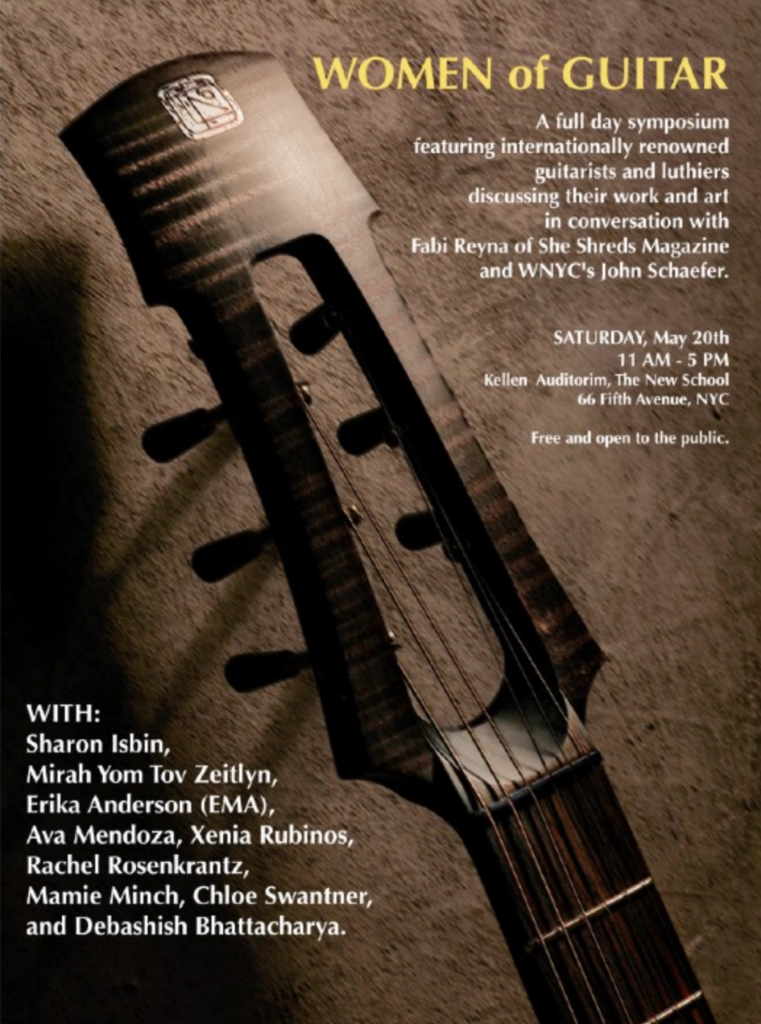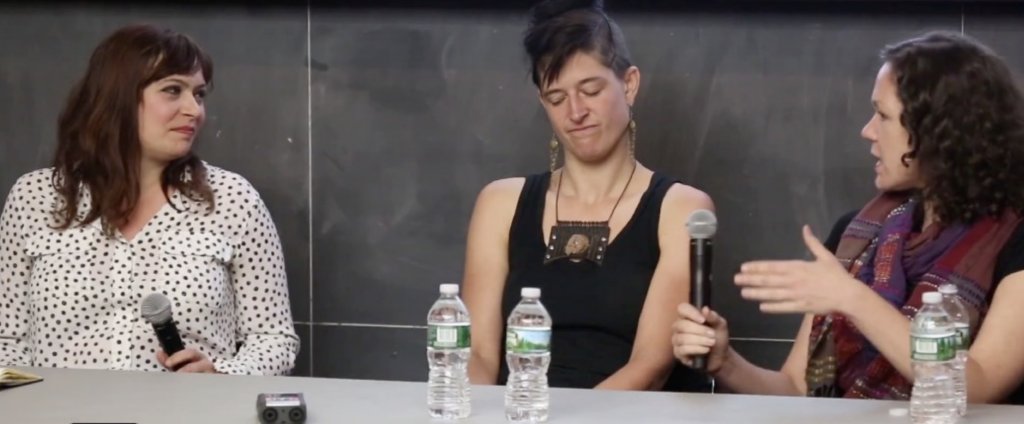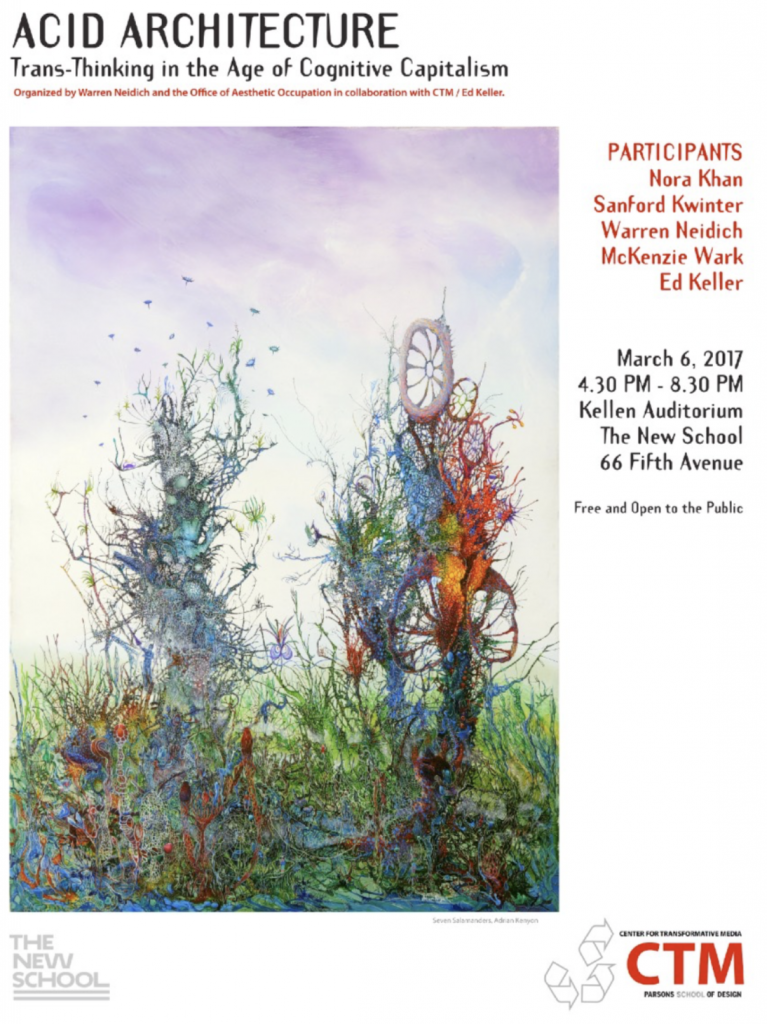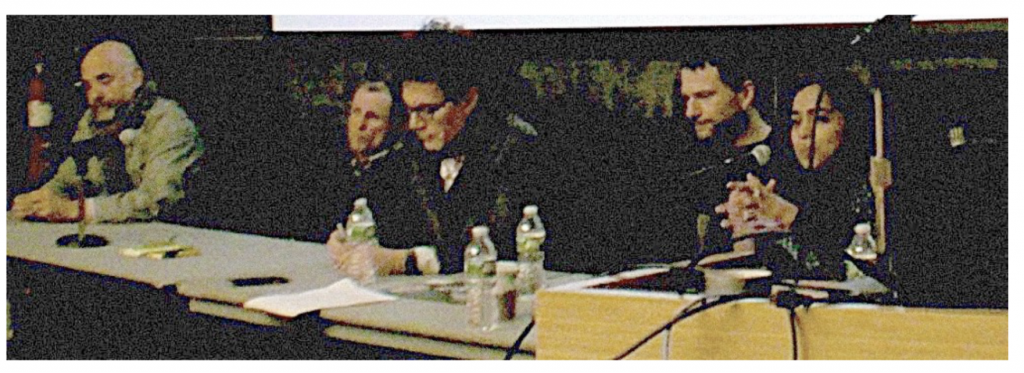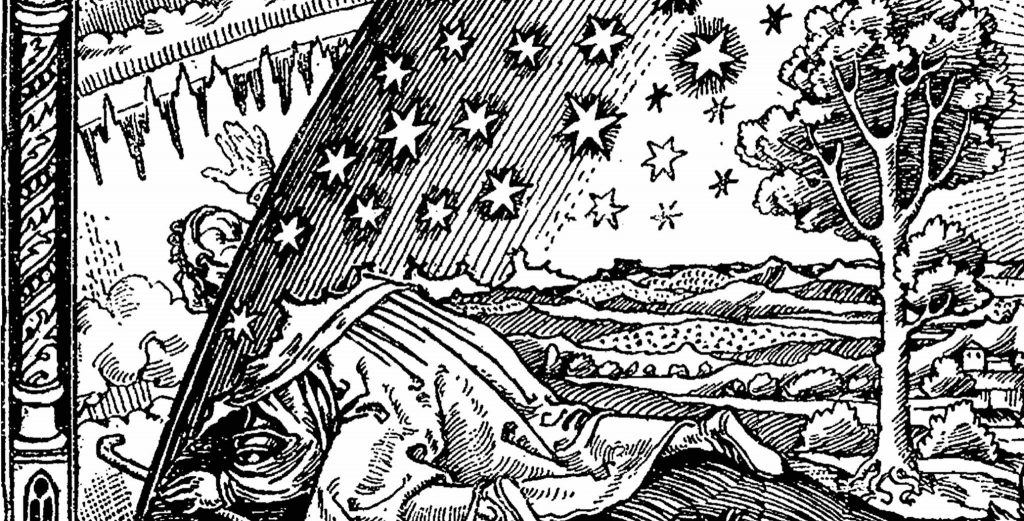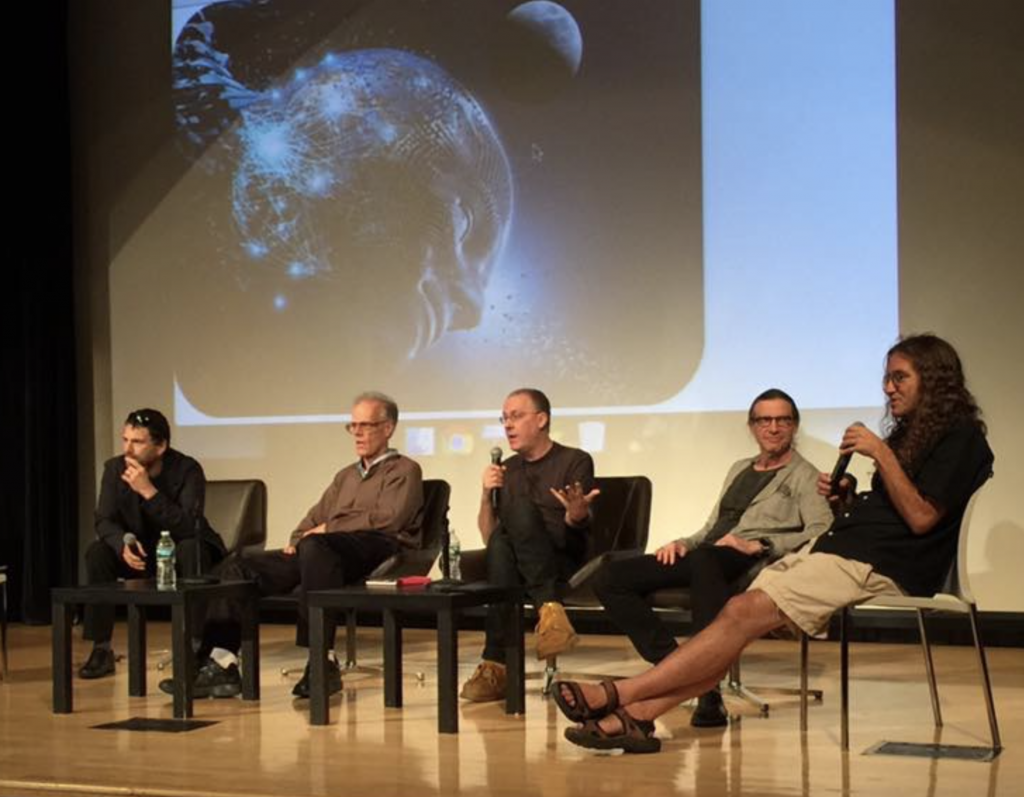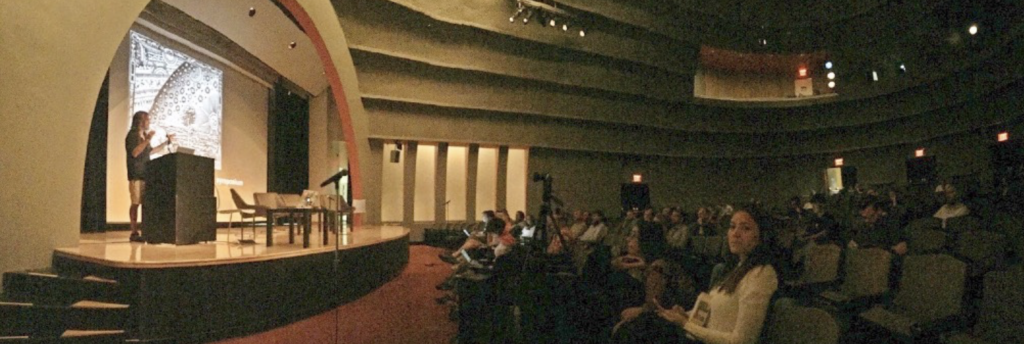2013-14-15 CTM Lecture, workshop and performance series

In 2013-14, CTM presents a series of lectures, workshops, & performances focusing on the cutting edge present and future of guitar and instrument design. Organized and coordinated by Ed Keller, and co-sponsored by Mannes School of Music, the series functions as a platform to build cross divisional collaboration at The New School, and opens exclusive external collaborations. Internationally renowned luthiers, designers, builders, materials innovators, composers, performers, theorists, and sound designers come together to explore points of connection between the traditions of musical instrument design and sound production, and new forms of design thinking facilitated by materials science, emergent materials, parametric design, the internet of things, physical computing, networked sound, and the politics of ‘noise’.
.
In the Fall 2014, our guests include master luthiers Michihiro Matsuda and Florian Vorreiter;
CTM Artist Fellow Elliott Sharp; and more TBA.
.
In the spring of 2014, our guests included guitarist/teacher/technologist Joe Ravo, architect, designer and coder Ezio Blasetti. Guest performances and workshops will be linked to the lecture series via our Collab course ‘The Radical Future of Guitar‘.
In the fall of 2013, our first guests in this project included some of the most internationally recognized and innovative guitar designers of recent decades: Ken Parker, Ned Steinberger, Ola Strandberg, and Gary Lee. Each lecture was accompanied by panel discussions, performances and demonstrations by internationally acclaimed artists including Allan Marcus, Charlie Hunter, Fred Hand, Charles Yang, Barry Salmon, Dom Minasi, & Ratzo Harris. Theorists and performers speaking on the current and future envelope of instrument design join these events; Martin Rosenberg was our guest in December in this capacity.
LECTURERS and GUESTS in the series:
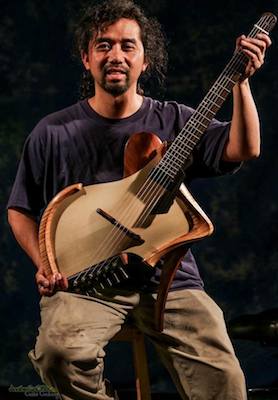
Michihiro Matsuda
Pairing traditional woodworking skills with an innovative sense of design and construction, Matsuda builds around ten to twelve guitars each year at his lutherie studio in Oakland California. His instruments integrate fine materials with organic shapes and graceful lines.
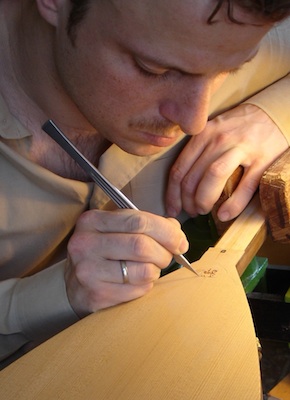
Florian Vorreiter
The emphasis in Florian’s work is on traditional construction methods and state-of-the-art knowledge from research as well as elaborate measuring procedures (Chladni-modes, FFT-Analysis, deflection measurements). The unique sound of Vorreiter-Instruments is accomplished by combining intuition and scientific procedures.
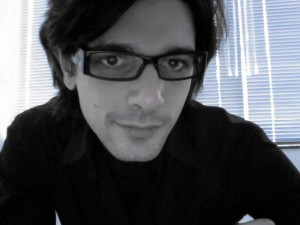 Ezio Blasetti, registered architect TEE-TCG, is the co-founder of maeta design (2011), ahylo studio (2009), apomechanes (2009) and algorithmicdesign.net (2008). He has taught generative design studios and seminars at Pratt Institute, the Architectural Association, Sciarc, RPI, UTS, PennDesign and Columbia University. His work has been exhibited and published internationally and is part of the permanent collection of the Centre Pompidou.
Ezio Blasetti, registered architect TEE-TCG, is the co-founder of maeta design (2011), ahylo studio (2009), apomechanes (2009) and algorithmicdesign.net (2008). He has taught generative design studios and seminars at Pratt Institute, the Architectural Association, Sciarc, RPI, UTS, PennDesign and Columbia University. His work has been exhibited and published internationally and is part of the permanent collection of the Centre Pompidou.
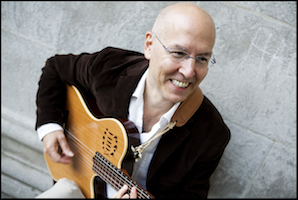
Joe Ravo
A native New Yorker, Joe has performed with jazz greats Dave Brubeck and Stanley Turrentine and worked in the orchestras of various hit Broadway shows including, A Chorus Line, 42nd Street, Secret Garden, City of Angels, and Dancin’. As the guitarist of Johnny Rodgers Band (JRB), Joe has toured around the globe as a cultural ambassador for the United States. When MIDI (Musical Instrument Digital Interface) was introduced, Joe exploited his engineering background to develop software for Korg USA as a contract programmer. As well as serving as director of technology for Mannes College the New School for Music since 2000, Joe is currently on the faculties of the music conservatory’s preparatory and extension divisions.

Ken Parker Currently building world class, innovative jazz archtop guitars in his personal shop Ken Parker Archtops, Parker was the founder of Parker guitars in 1991, a company which developed radically innovative electric guitars utilizing cutting edge manufacturing and materials.

Ned Steinberger Today designing and building both electric classical bowed instruments and electric guitars and basses with his company NS Design, Steinberger was renowned in the 1980s for his use of carbonfiber in his eponymous Steinberger ‘headless’ guitars and basses from that period.

Ola Strandberg’s line of ergonomically designed instruments extrapolate the design ideas seen in other ‘headless guitars’, and his innovations in neck profile design, CNC milling, materials, fanfret and tempered fretboards- as well as Creative Commons licensing much of his design work- make him one of the most exciting designers/builders today. CTM & Parsons will be partnering exclusively with Strandberg in Spring 2014 in a collab course studying the ‘Radical Future of Guitar’.

Gary Lee
Trained as a research scientist with a Ph.D. in biochemistry,
in 2007 Gary launched Lee Guitar Works and the transition to building guitars full-time. Gary’s research background inspires creativity, thoughtful design and exacting execution. His handcrafted classical guitars incorporate the best of traditional design with contemporary features such as adjustable-action necks, elevated fingerboards, double top laminate soundboards, bridges with 12-hole tieblocks, and rigid sides with solid linings for excellent projection.
As part of the series, CTM presents theorists and performers speaking on the current and future envelope of instrument design.
What is at Stake with Ergonomics in Guitar Design, Martin E. Rosenberg [link to event description]
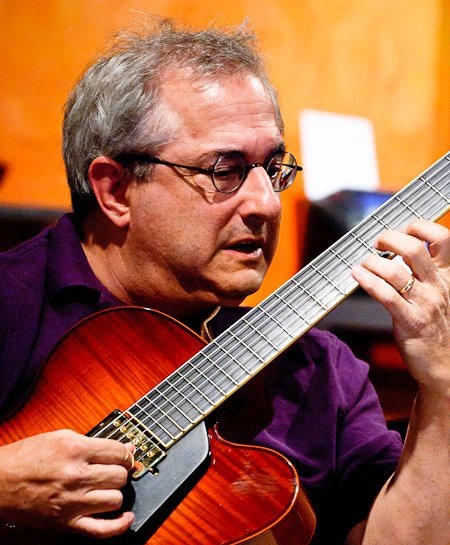 Martin E. Rosenberg wrote his dissertation on the cultural work across the arts of the scientific concept of “emergence,” beginning with Henri Poincaré, Henri Bergson, and Marcel Duchamp, and ending with Gilles Deleuze and Félix Guattari, Ilya Prigogine, Francisco Varela and Thomas Pynchon. He recently published on emergent behaviors, visible in music notation, in jazz improvisation and composition, and currently researches the cognitive neuro-science of improvisers. Originally trained in jazz composition at the Berklee College of Music, he has returned (after thirty years) to performing in the Pittsburgh area.
Martin E. Rosenberg wrote his dissertation on the cultural work across the arts of the scientific concept of “emergence,” beginning with Henri Poincaré, Henri Bergson, and Marcel Duchamp, and ending with Gilles Deleuze and Félix Guattari, Ilya Prigogine, Francisco Varela and Thomas Pynchon. He recently published on emergent behaviors, visible in music notation, in jazz improvisation and composition, and currently researches the cognitive neuro-science of improvisers. Originally trained in jazz composition at the Berklee College of Music, he has returned (after thirty years) to performing in the Pittsburgh area.

